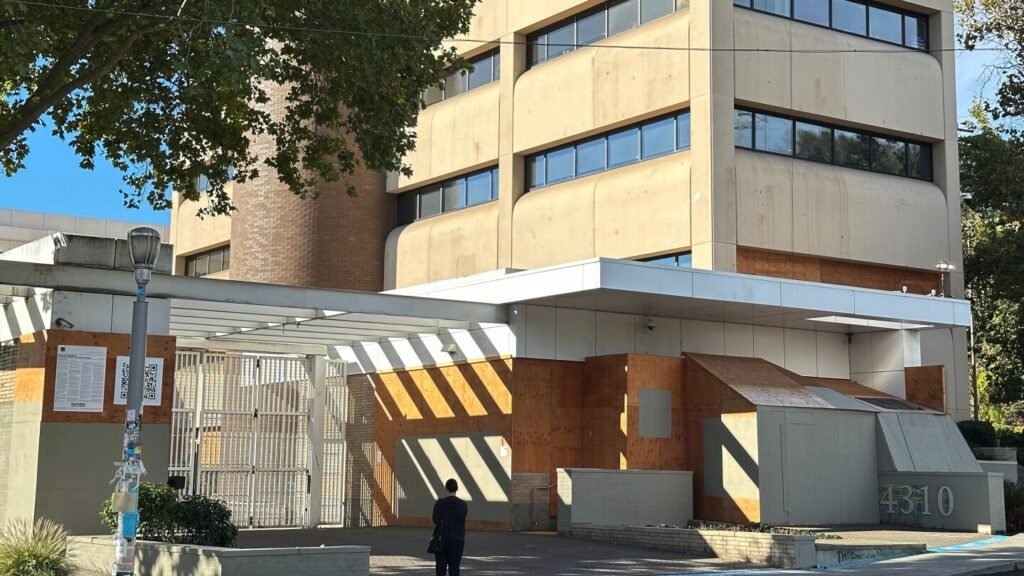Trump Authorizes Troop Deployment to Portland Amidst Protests
In a significant announcement made Saturday, President Donald Trump declared his intention to deploy troops to Portland, Oregon, to address what he described as actions by "domestic terrorists." Utilizing social media, Trump directed the Department of Defense to "provide all necessary Troops to protect war-ravaged Portland," alleging threats against U.S. Immigration and Customs Enforcement (ICE) facilities.
Local Leaders React to the Deployment
The situation has garnered mixed responses, particularly from local authorities. Portland’s mayor, Keith Wilson, expressed strong opposition to the troop deployment, insisting that the city did not require such intervention. He stated, “Our nation has a long memory of acts of oppression, and the president will not find lawlessness or violence here unless he plans to perpetrate it.”
Residents Question the Need for Troops
On the ground in Portland, residents were noticeably skeptical of the perceived urgency that Trump claimed justified the military presence. Local citizen Allen Schmertzler, 72, articulated his disbelief, questioning, “Where’s the emergency?” Similarly, another resident, John McNeur, 74, remarked on the peaceful atmosphere of the city by stating, “This place is not a city that’s out of control. It’s just a beautiful place.”
Trump’s Broader Strategy
The president’s remarks come within the context of a broader plan that includes potential troop deployments in other cities like Chicago and Memphis. Although Trump has previously threatened to send the National Guard to Chicago, there has yet to be a concrete deployment to that city. A limited troop presence—approximately 150 National Guard members—is expected in Memphis shortly. This strategy appears to be a response to ongoing protests and unrest across various American cities.
In Memphis, a group of approximately 80 to 100 protesters demonstrated against the anticipated arrival of federal agents, holding signs proclaiming, “Resources Not Task Forces” and “Memphis don’t need no occupation.” They advocated for increased funding for public services rather than a military presence.
Lack of Specifics Surrounding the Deployment
Despite Trump’s assertions, the Pentagon has been slow to provide detailed information regarding the planned troop deployment in Portland. Pentagon spokesperson Sean Parnell indicated that updates would come as they become available, while also confirming readiness to mobilize military personnel in support of Department of Homeland Security operations. However, Oregon’s Governor Tina Kotek has countered that there is “no national security threat” in Portland, emphasizing that the community remains safe and calm.
Legislative Pushback from Oregon’s Leaders
Oregon’s congressional delegation, excluding Republican Rep. Cliff Bentz, has voiced strong opposition to Trump’s unilateral actions, warning that they represent an abuse of executive authority. They argue that such deployments incite violence and undermine the constitutional balance between federal and state power.
Background on Protests in Portland
Portland, with a population of approximately 636,000, has experienced ongoing protests since the killing of George Floyd in 2020. These demonstrations have often turned violent, prompting the Trump administration to send hundreds of federal agents to protect federal properties. The ICE facility in Portland has become a focal point of these protests, and recent demonstrations have been less intense than those held during the peak of the racial justice protests.
Protests and Community Sentiment
While the protests have subsided, early Saturday saw a starkly calm environment outside the ICE building, with no visible signs of protests or law enforcement. Federal agents report having sustained injuries during past confrontations, while protesters have also claimed injuries, reflecting the tense dynamics from earlier protests.
Portland officials are keen to highlight the recovery of the downtown area, which is showing signs of life again. Recent reports indicate that pedestrian traffic has surged to levels not seen since before the COVID-19 pandemic, and violent crime in the city decreased by 17% in the first half of the year compared to 2024.
The Path Forward
As debates continue over the necessity of federal troops, many residents and local officials are advocating for a focus on community improvement rather than federal intervention. Trump’s references to "radical left" entities as primary threats to the nation may complicate conversations about how best to address the local issues in Portland and beyond.
For more insights regarding sanctuary cities and the ongoing tensions related to immigration and law enforcement, visit USCIS and ACLU.
This evolving situation raises critical questions about the role of federal forces in local governance and the balance of power between state and federal authorities. As the deployment unfolds, it remains to be seen how Portland and other cities will respond and what the broader implications may be for communities across the nation.


